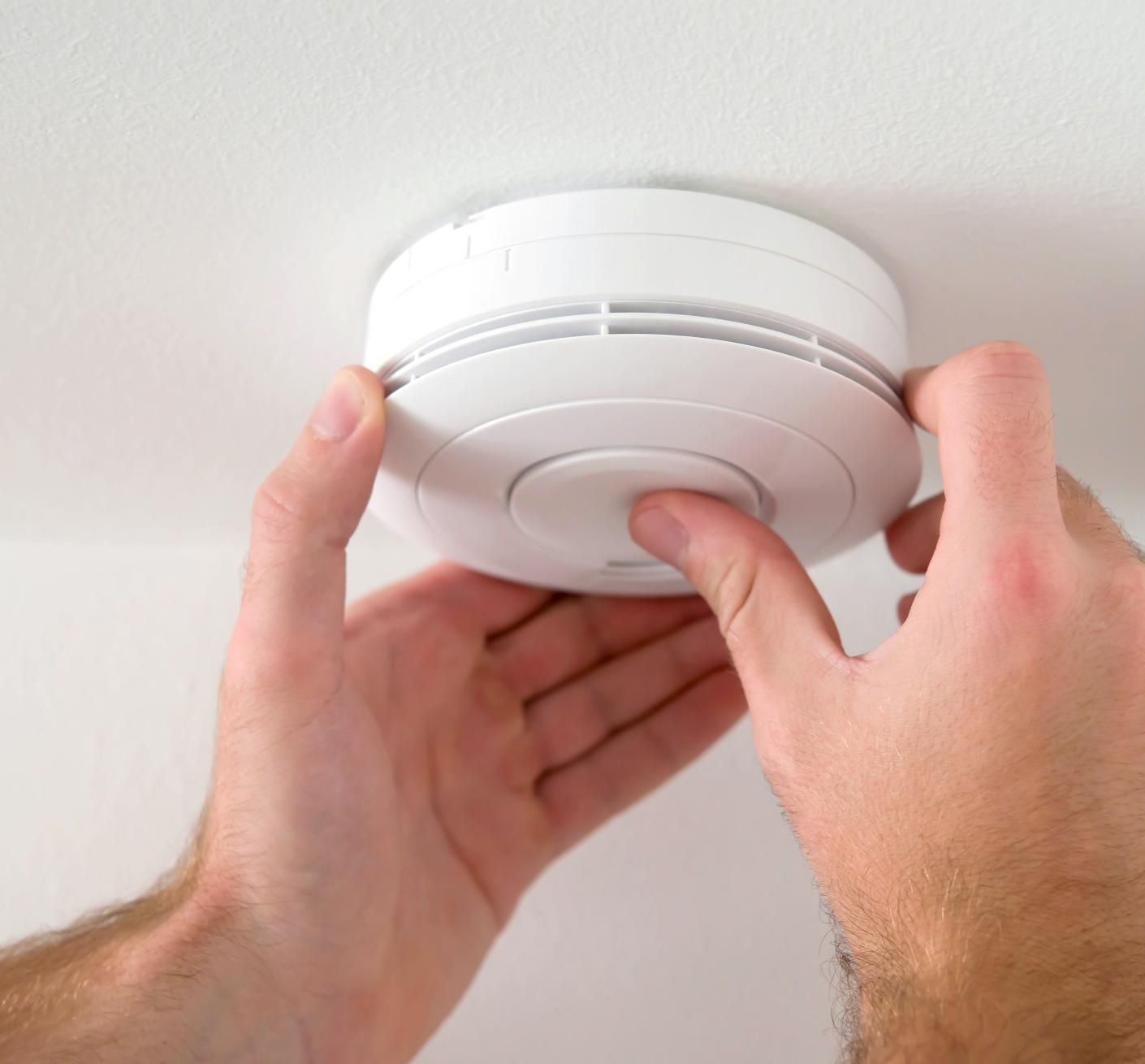Be Moore Secure
Why Do Smoke Detectors Need To Be Changed Every 10 Years?

Why You Need to Replace Your Smoke Alarm Every 10 Years in the UK
This isn't just advice for those in Southampton, Winchester, Wilmslow or Manchester, Smoke Alarms are a vital part of home safety, providing early warning of fire and giving you precious time to escape. In the UK, fire safety is a priority, with campaigns like Fire Kills reminding us to stay vigilant. However, smoke alarms have a limited lifespan of about 10 years, after which they must be replaced to remain effective. This article explains why smoke alarms need replacing every decade, how to comply with UK regulations, and how to keep your home fire-safe.
Why Do Smoke Alarms Have a 10-Year Lifespan?
Smoke alarms detect smoke using sensors—either ionization (using a small radioactive source) or photoelectric (using a light beam). Over time, these sensors degrade due to dust, humidity, and general wear. After approximately 10 years, they may become less reliable, failing to detect smoke quickly or at all. The internal electronics, such as circuit boards, can also deteriorate, and batteries (even in mains-powered alarms) lose effectiveness.
The British Standards Institution (BS 5839-6) and UK fire safety guidelines recommend replacing smoke alarms every 10 years to ensure they meet safety standards. This aligns with manufacturer designs, which balance reliability and affordability.
Reasons to Replace Your Smoke Alarm After 10 Years
1. Sensor Degradation
Ageing sensors may not detect smoke in time, delaying or preventing the alarm from sounding. In a fire, every second counts, and a faulty alarm could put lives at risk.
2. False or Nuisance Alarms
Older alarms can become oversensitive or erratic, triggering unnecessarily due to dust or sensor wear. This may tempt you to disable the alarm, leaving your home unprotected.
3. Compliance with UK Regulations
UK laws, such as the Smoke and Carbon Monoxide Alarm (England) Regulations 2022, require working smoke alarms in rented homes and new builds. In Scotland, since February 2022, all homes must have interlinked smoke alarms on every storey and a heat alarm in the kitchen. Replacing outdated alarms ensures compliance with these rules.
4. Improved Technology
Modern smoke alarms offer advanced features, such as 10-year sealed batteries, interlinked systems (where all alarms sound together), and smart technology for remote alerts. Replacing old alarms keeps your home up to date with the latest safety innovations.
5. Peace of Mind
A reliable smoke alarm provides confidence that your family is protected. Regular replacement is a small investment for safety and security.
How to Know When to Replace Your Smoke Alarm
• Check the Manufacture Date: Look for the date printed on the back or side of the alarm. If it’s over 10 years old, replace it immediately.
• Listen for End-of-Life Signals: Many modern alarms chirp or flash to indicate they’ve reached the end of their lifespan.
• Test Weekly: Press the test button weekly, as recommended by the Fire Kills campaign. If the alarm doesn’t sound, replace it, even if it’s less than 10 years old.
Tips for Maintaining and Replacing Smoke Alarms
• Follow UK Regulations: Install smoke alarms on every storey of your home, ideally in hallways and landings. In Scotland, include a heat alarm in the kitchen and ensure alarms are interlinked. For rented properties in England, landlords must ensure alarms are installed and working.
• Choose the Right Alarm: Opt for alarms with 10-year sealed batteries to minimize maintenance, as recommended for rental properties. Combination alarms (ionization and photoelectric) offer the best protection.
• Mains-Powered vs. Battery-Powered: In new builds and some rented homes, mains-powered alarms with battery backup are required. Check local regulations to ensure compliance.
• Clean Regularly: Gently vacuum or dust alarms every six months to prevent dust buildup, which can affect performance.
• Dispose Safely: Ionization alarms contain trace amounts of radioactive material. Contact your local council’s recycling or hazardous waste program for proper disposal.
• Test Weekly: The UK’s Fire Kills campaign urges testing smoke alarms every week to ensure they’re working.
Smoke alarms are your first line of defence against fire, but they must be reliable to save lives. In the UK, replacing smoke alarms every 10 years is essential to ensure sensor performance, comply with regulations, and benefit from modern technology. Take a moment to check the manufacture date on your alarms, test them weekly, and replace any that are over a decade old. By staying proactive, you can protect your home and loved ones from the dangers of fire.
Don’t put it off—check your smoke alarms today! Share this advice with friends and family to spread the word about fire safety. For more information, visit www.gov.uk/firekills or contact your local Fire and Rescue Service or give us a call for free advice and cost effictive replacement.
